Please find information about our speakers below.
Scientific talks
Jess Bunchek (German Aerospace Center, Germany)
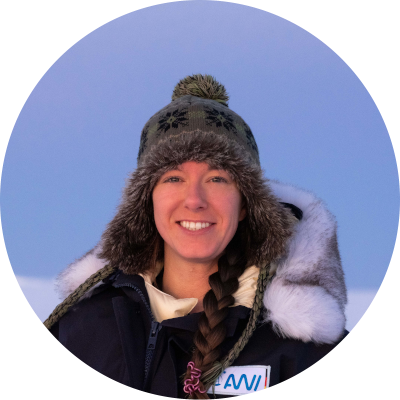 |
Jess Bunchek is an astrobotanist and doctoral candidate with the German Aerospace Center (DLR) in Bremen, Germany, where she is researching new methods for monitoring plant health. Prior to her work at DLR, she was a scientist and pseudonaut at NASA’s Kennedy Space Center, where she supported space crop production in the Veggie plant growth chambers on the International Space Station. From late 2020 to early 2022, Jess overwintered in Antarctica at Germany’s Neumayer Station III as the EDEN ISS operator, a collaboration between DLR, NASA, and the Alfred Wegener Institute – Helmholtz Center for Polar & Marine Research. Jess holds a B.S. in Botany from Purdue University and M.S. in Agronomy from The Pennsylvania State University. |
Pablo D. Cárdenas (University of Copenhagen, Denmark)
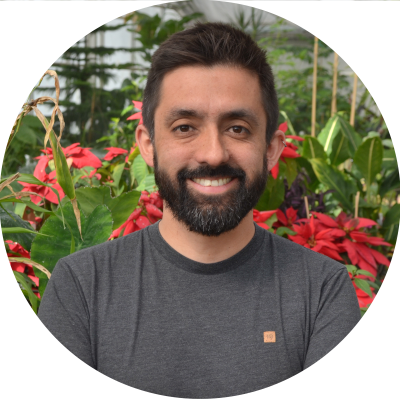 |
Pablo D. Cárdenas aims to advance the knowledge of how to domesticate local wild plants as future food crops to help improve the lives of people and build a more sustainable society, while also uncovering fundamental aspects of plant biology. LinkedIn: https://www.linkedin.com/company/plant-bioengineering/ |
Patience Chatukuta (Max Planck Institute for Biology Tübingen, Germany)
 |
Patience Chatukuta leads the African Plant Genomics Group at the Max Planck Institute for Biology Tübingen in Germany. She earned her Bachelor’s degree in Applied Biology and Biochemistry from the National University of Science and Technology in Zimbabwe. She was awarded a Postgraduate Training Fellowship by the Organisation for Women in Science for the Developing World to pursue her Master’s and PhD study in Plant Biotechnology at the North-West University in South Africa. She then joined the University of the Witwatersrand in South Africa as a Postdoctoral Fellow in the Plant Biotechnology Research Group before receiving a Humboldt Postdoctoral Fellowship to work in the Molecular Biology department at the Max Planck Institute for Biology Tübingen. Currently, her group uses genome-centred approaches to study the diversity of under-researched subsistence crops in southern Africa together with scientists based on the African continent, with a focus on the diversity of horned melon. Website: https://www.phd.tuebingen.mpg.de/53956/patience-chatukuta |
George Coupland (Max Planck Institute for Plant Breeding Research, Germany)
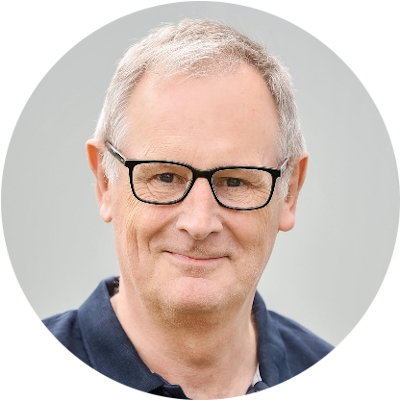 |
George Coupland's group studies the regulatory mechanisms that control the onset of reproduction in plants, how these are regulated by environmental cues and how they are modified with life history during plant evolution. They use the Brassicaceae as a model system and have particularly focused on how initiation of flowering is controlled by seasonal cues in the context of annual and perennial life cycles. They have shown how in Arabidopsis thaliana circadian-clock regulation of transcription of specific regulatory genes and photoreceptor signaling combine to promote flowering of this species in response to seasonal changes in day length. They contributed to identify the FT protein as a systemic signal that is made in the leaves in response to daylength and moves to the shoot apex to trigger floral development. Recently, they have revised understanding of the biochemical function of FT and its activity in the florigen transcriptional activation complex. In addition, they developed Arabis alpina as a model perennial system, and exploit reverse genetics and genetic variation within natural populations to study floral induction, inflorescence development and floral bud development in the context of the perennial life cycle. In this species, they recently showed how a network of microRNAs and transcription factors act in the shoot apex to control the age at which this perennial plant becomes sensitive to winter cold. |
Marta Del Bianco (Italian Space Agency, Italy)
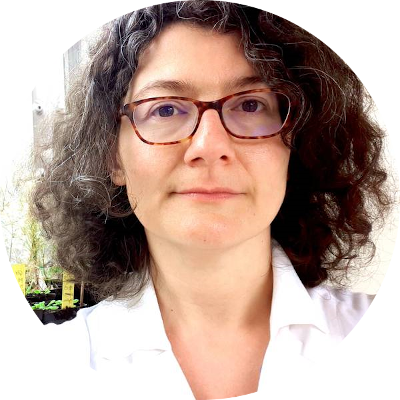 |
Marta Del Bianco has obtained her PhD from the University of Leeds with a thesis on the context specificity of auxin response in plant development. During her postdoc experiences she studied the role of cytokinin in root development and the fundamental aspects of the root graviresponse. She is now an independent researcher at the Italian Space Agency (ASI), where she conducts basic and applied research in the fields of plant response to gravity, bio-regenerative life support systems, and food production. Member of the Organizing Committee of the Space Life Sciences Working Groups of ASI, where she is the coordinator of the Working Group on Biological Systems for Life Support, and ASI representative at ISLSWG (International Space Life Sciences Working Group). |
Charles Melnyk (Swedish University of Agricultural Sciences, Sweden)

Photo: Jenny Svennås-Gillner |
Charles Melnyk is a Professor of Plant Physiology at the Swedish University of Agricultural Sciences (SLU) in Uppsala, Sweden. Originally from Canada, Charles did his PhD at the Sainsbury Laboratory (Norwich, UK) and the University of Cambridge (UK) using Arabidopsis grafting to study the shoot to root mobility of small RNAs. He then went on to do a post-doc at the Sainsbury Laboratory (Cambridge, UK) studying the developmental basis for grafting. Since 2017, he has been a group leader at SLU running a research program focusing on how diverse plant species join together with a particular interest in grafting, parasitic plants, vascular biology and tissue regeneration. Website: https://melnyklab.com/ |
Polina Novikova (Max Planck Institute for Plant Breeding Research, Germany)
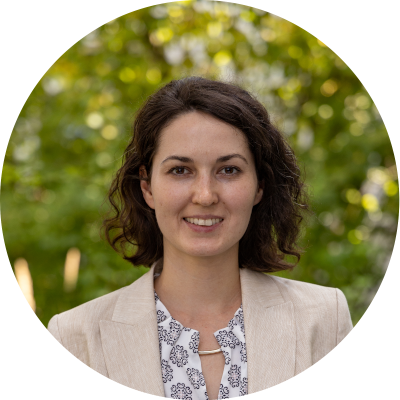 |
Polina Novikova did her PhD in the lab of Magnus Nordborg in Vienna (Austria), studying reticulation in Arabidopsis genus. Then moved to Ghent (Belgium) for her postdoctoral fellowship in the bioinformatics’ lab of Yves Van de Peer. In 2020 she started her own lab at the Department of Chromosome Biology of the Max Planck Institute for Plant Breeding Research, where she is focusing on many aspects of evolutionary cycle of polyploidy. From September 2025 she is joining the Plant Systems Biology Department of VIB in Ghent as a Group Leader to continue her work on ecological genomics in polyploids. Website: https://www.novikovalab.org/ |
Boas Pucker (University of Bonn, Germany)
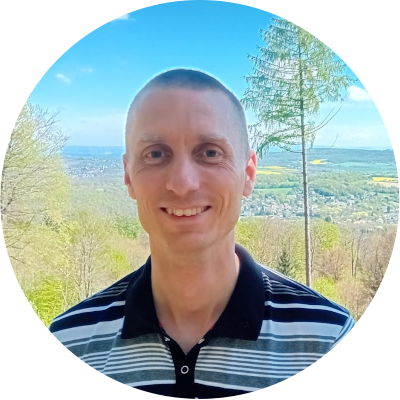
Photo: Pucker |
Boas Pucker studied Biology and Genome-Based Systems Biology at Bielefeld University. During his doctoral studies at the Center for Biotechnology (CeBiTec) at Bielefeld University, he worked on several plant genome sequencing projects and developed bioinformatics tools. From 2016 to 2019, he was supervising the ‘Bielefeld-CeBiTec’ iGEM teams. After earning my doctorate, he joined the Department of Plant Sciences at the University of Cambridge (UK) as a postdoctoral researcher. There, he investigated the complex evolution of pigment biosynthesis pathways in the plant order Caryophyllales. From 2021 to 2025, he led the Plant Biotechnology and Bioinformatics group as a professor at TU Braunschweig. he also headed the technology transfer center Plant Genomics and Applied Bioinformatics at iTUBS. Currently, he is a Professor of Molecular Plant Sciences at the University of Bonn. His research focuses on the discovery and evolutionary analysis of plant biosynthetic pathways. His lab combines genome sequencing, molecular biology, biochemistry, big data analysis, and tool development to gain a deeper understanding of plant metabolic diversity. Website: https://www.mps.uni-bonn.de |
Aalt-Jan van Dijk (University of Amsterdam, Netherlands)
|
Aalt-Jan van Dijk is professor at the Swammerdam Institute for Life Sciences at the University of Amsterdam, where he leads the Biosystems Data Analysis group. This group develops advanced methods to analyze complex biological data, blending a wide range of expertises, including bioinformatics, data mining, data fusion, machine learning, and systems modelling. Aalt-Jan has broad experience in plant bioinformatics, systems biology and computational biology. His focus is on development and application of machine learning approaches to analyze omics data, including e.g. analysis of gene regulatory networks, prediction of protein functions based on protein structures, or the design of novel enzymes. Website: www.bdagroup.nl |
Daniel Zilberman (Institute of Science and Technology, Austria)
Science communication
Madelaine Bartlett (The Sainsbury Laboratory Cambridge University, Great Britain)
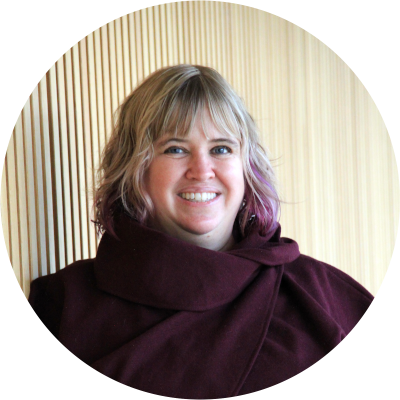 |
Madelaine Bartlett’s research focuses on the genetics of plant development, and the role of developmental evolution in morphological evolution. Before coming to SLCU, Madelaine Bartlett was a faculty member in the Biology Department at the University of Massachusetts Amherst for a decade, where she rose to the rank of Professor. Her postdoctoral work was with Prof. Clinton Whipple at Brigham Young University, where she worked on the developmental genetics of maize, and molecular evolution. Her PhD is from the University of California Berkeley, advised by Prof. Chelsea Specht, where she worked on the evolution of floral development in tropical monocots. Her undergraduate degree in genetics and molecular biology is from the University of the Witwatersrand in Johannesburg, South Africa, where she grew up. Madelaine Bartlett’s work as a researcher and scholar has been recognized by multiple awards, including the Marcus Rhoades award from the Maize Genetics Cooperation, and the Emerging Leader Award from the Botanical Society of America. |
Nick Desnoyer (University of Zürich, Switzerland)
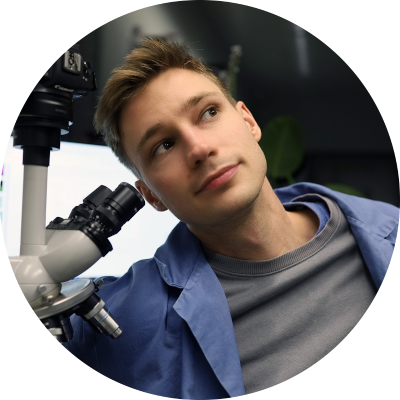 |
Nick Desnoyer is currently a postdoctoral researcher and artist in the group of Sophien Kamoun at The Sainsbury Laboratory. His research thus far has focused mostly on flowering plant reproduction, using genetic and microscopy approaches to address questions surrounding gametophyte interactions and double fertilization. His art over the past years has primarily utilized microphotography, time-lapse, and animation to capture fascinating aspects of plant science. More recently, he is shifting towards a project that blends both research and art, taking a focus on engineering new types of flowers using synthetic biology approaches in Arabidopsis. This project seeks to push the boundaries of plant engineering and contemporary art in public-facing manner to inspire wide-spread interest and creativity within the field of plant biology. Website: https://www.nickdesnoyer.com/ |
Richard McElreath (Max Planck Institute for Evolutionary Anthropology, Germany)
Sophie Wolf (Leipzig University, Germany)
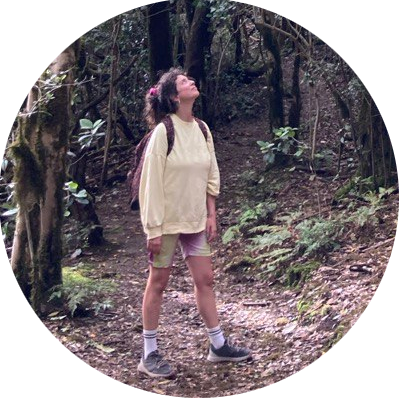
Photo: David Reher |
Sophie Wolf (she/her) is a doctoral researcher at the Institute for Earth System Science and Remote Sensing at Leipzig University, working in the Environmental Data Science and Remote Sensing Lab led by Prof. Miguel Mahecha. With a background in Biochemistry (BSc) and Bioinformatics (MSc), her research focuses on the functional properties of plant on a global scale and, more recently, how these relate to ecosystem resistance and resilience under extreme climatic events. In addition to her scientific work, Sophie is also an artist and curator. She explores the complexities and ambiguities of global change through both analytical and creative lenses. Passionate about open science and open data, she is committed to reflecting on how researchers — particularly within the academic elite — can help shift power dynamics in knowledge production and foster more equitable partnerships with the communities most affected by environmental change. Website: https://www.physes.uni-leipzig.de/ief, https://rsc4earth.de/ |
Tamara Worzewski (Science Journalism, Germany)
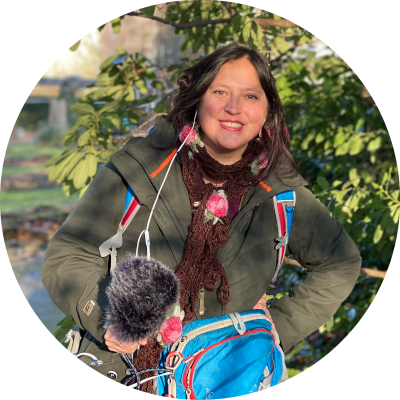 |
Tamara Worzewski is a science journalist, dedicated to scientific storytelling and to engaging the public with plant-related topics. She started a scientific career as a geophysicist involving Electromagnetics field work onshore and offshore all over the world. After a postdoc on thermographic non-destructive testing methods, she studied journalism for pursuing her passion of communicating science and connecting people with it. Now she reaches various people by using different communication tools, formats and platforms: Tamara writes background articles for newspapers or magazines such as Spektrum der Wissenschaft (German edition of Scientific American), she makes educational films and film reportages on science projects, and she produces Social Media Content for the German plant science platform “Blattgeflüster” of www.pflanzenforschung.de. There, she explores creative ways to overcome some specific challenges of communicating plant science. Website: https://www.miramundum.de/ |
